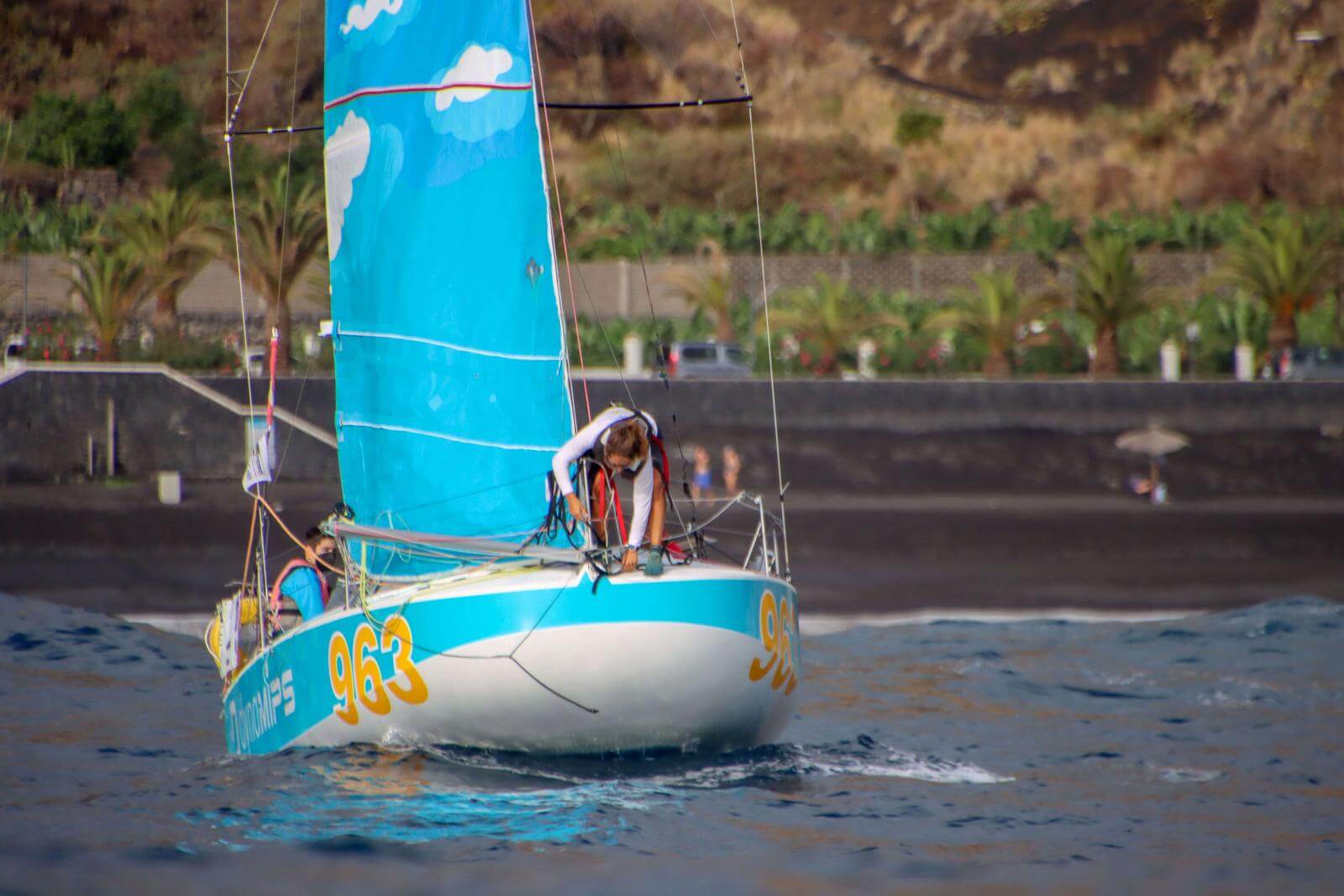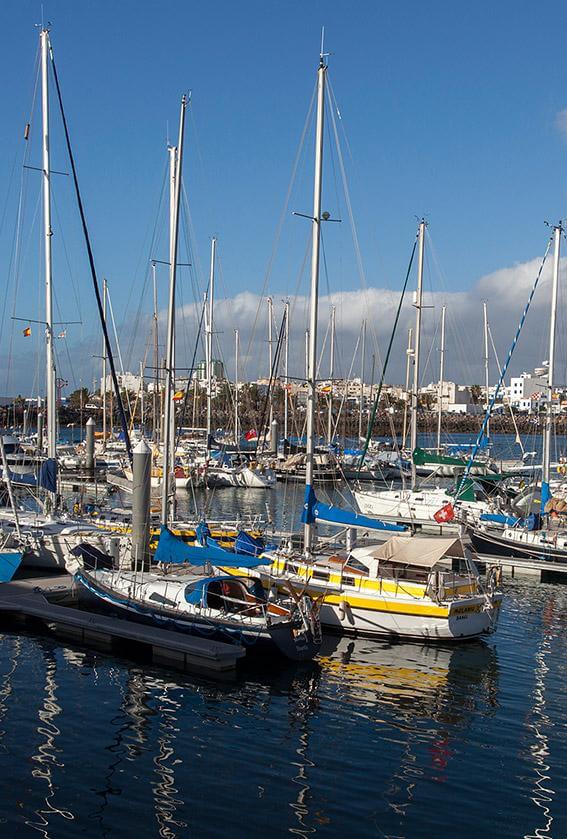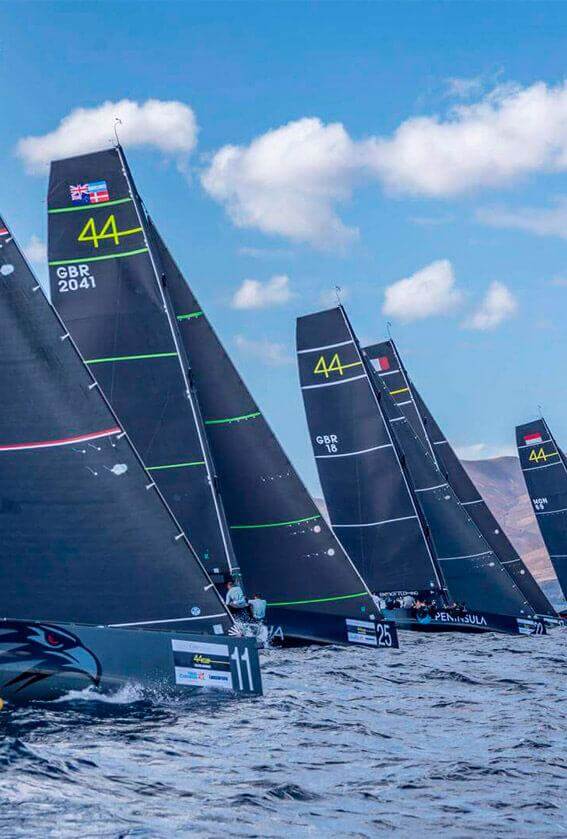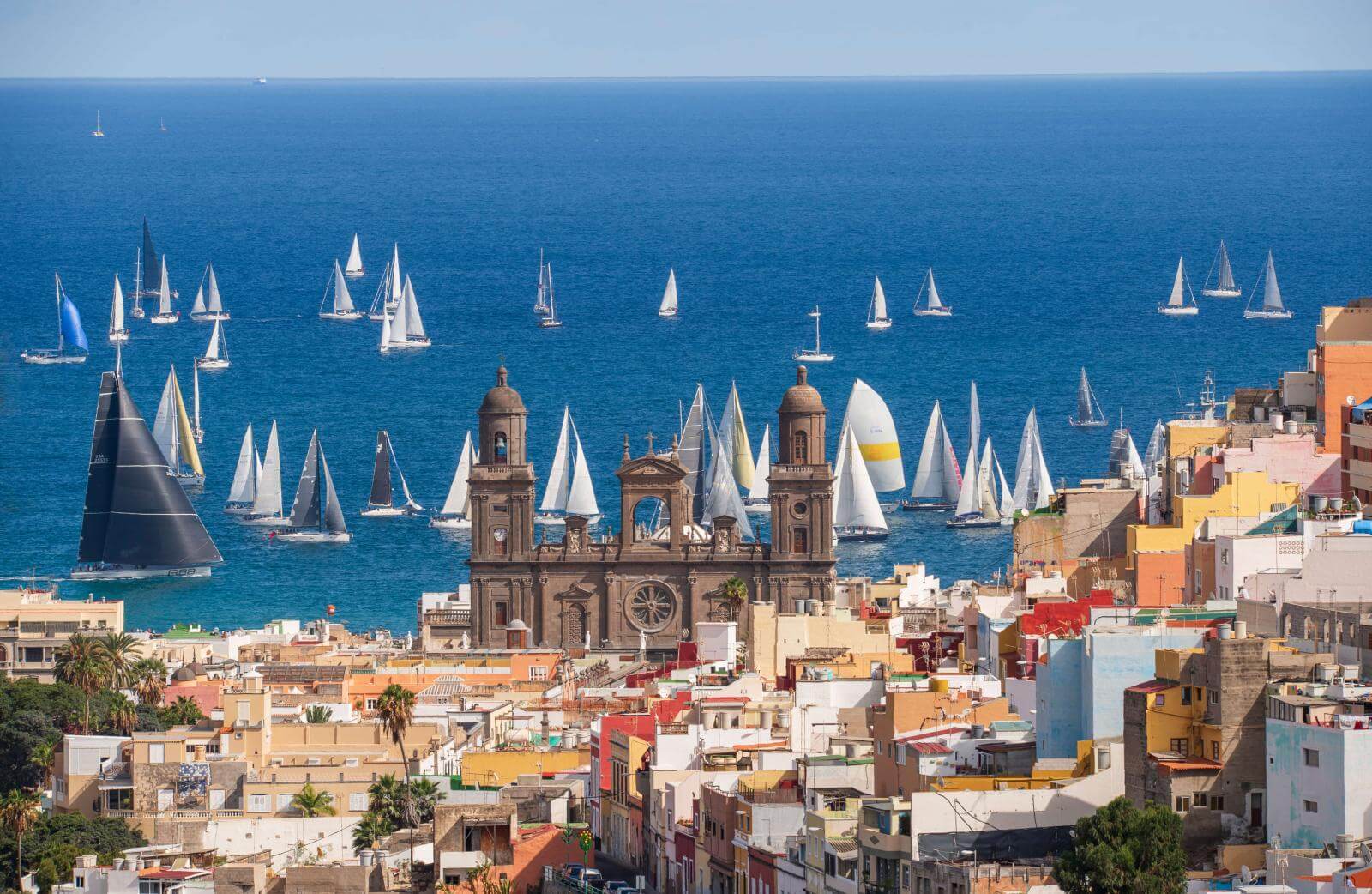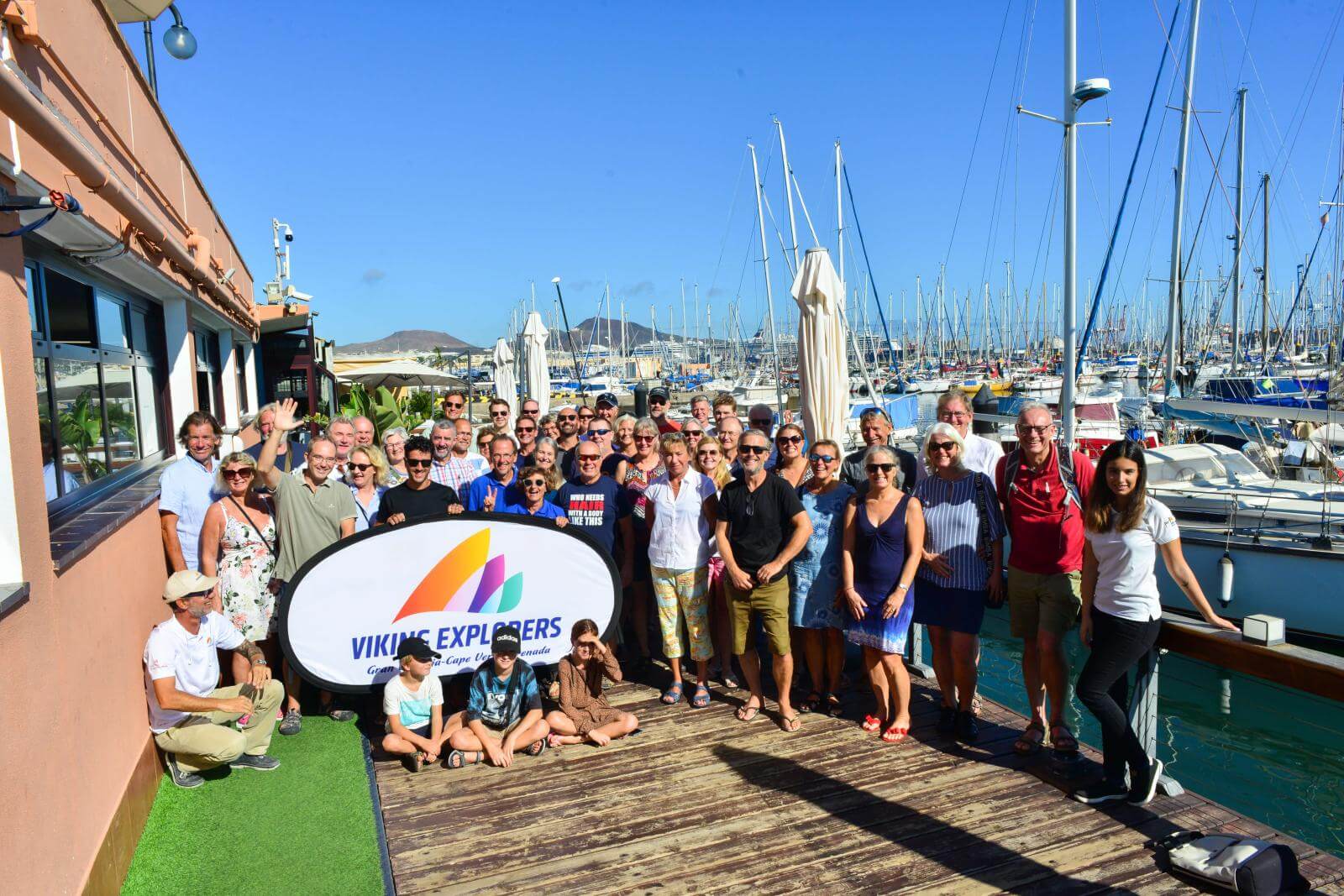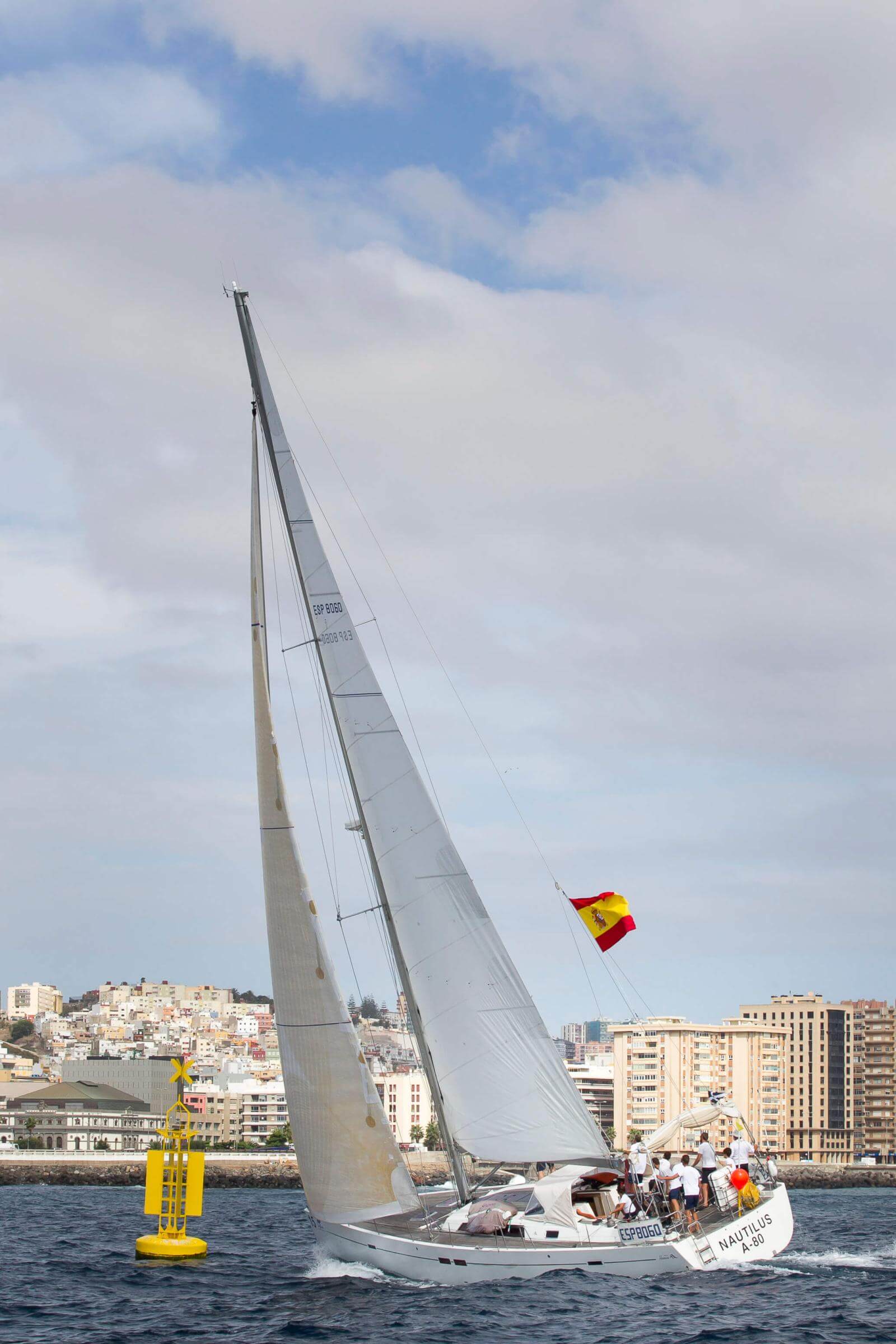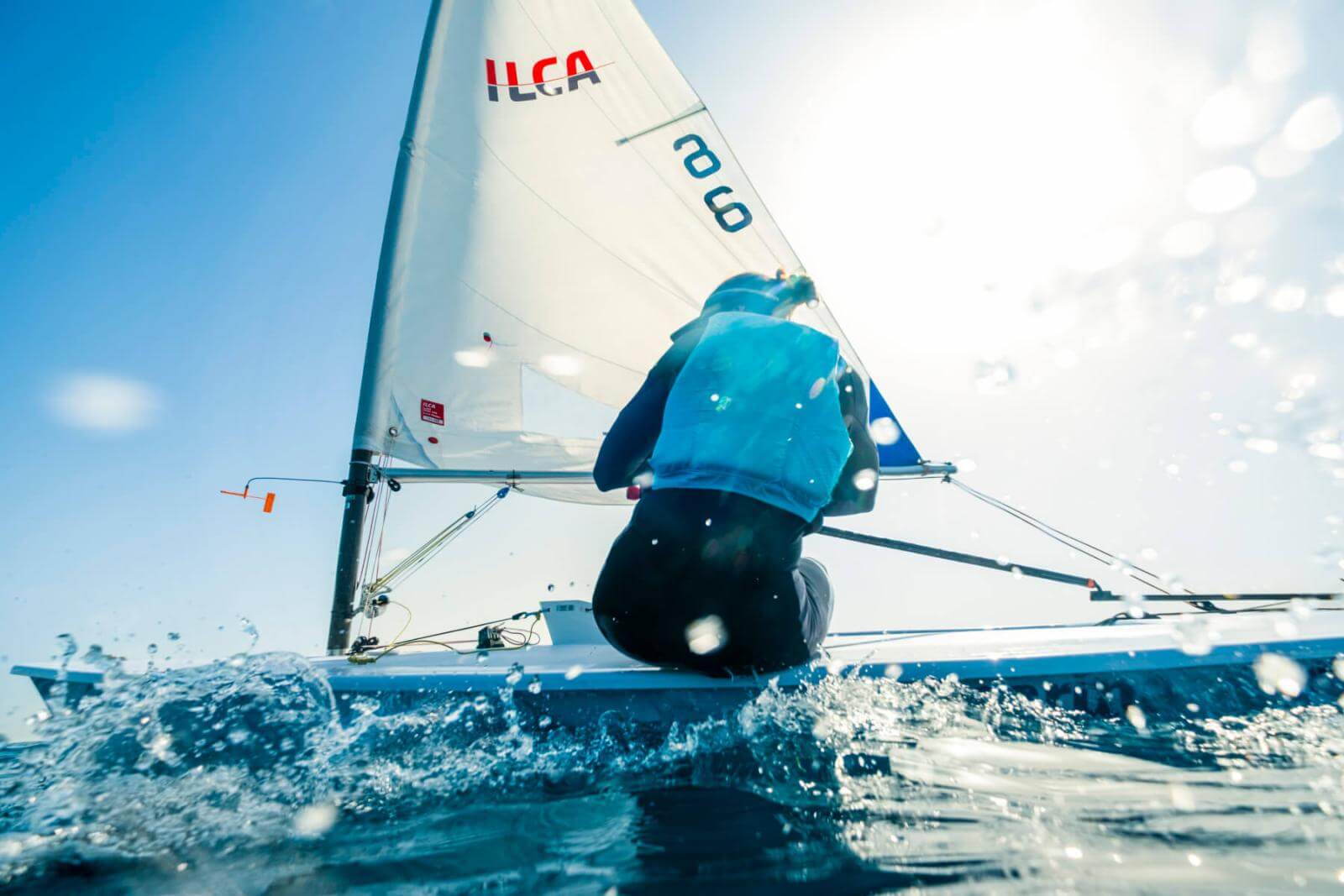Every year top athletes participate in international yachting regattas which take place in the Canary Islands. With excellent mooring and repair facilities, the islands are the perfect base for coastal and transatlantic regattas. From inspiring stories of human endurance, like the Mini-Transat, to impressive fleets with hi-tech, 100-foot-long racing yachts and hundred-year-old classics.
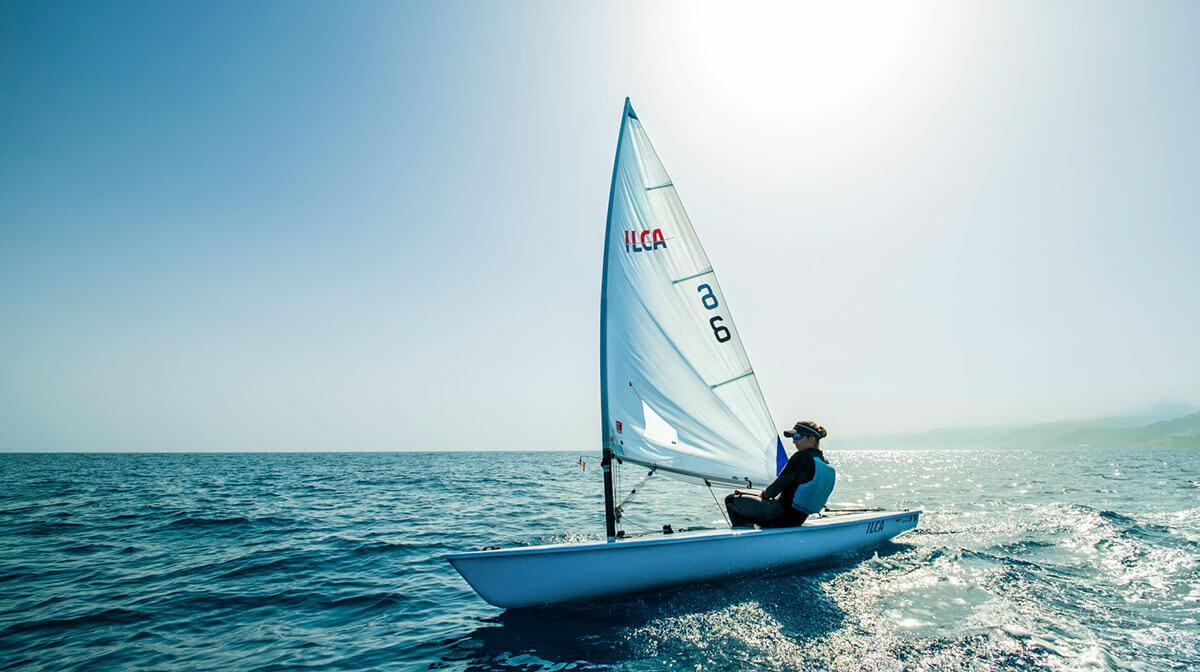
A first-class nautical calendar
The past 15 years have seen a huge shift in the number and quality of the events that yachting enthusiasts can enjoy in the Canary Islands. As well as the highly traditional cruiser trials, such as the San Ginés International Regatta or the Canarian circuit trials, sailors visiting the islands have also had the chance to coincide with sailors who have participated in the Olympics, the America’s Cup and the Vendée Globe, and to witness spectacular ocean regatta departures and exciting international competitions for monotypes.
Transatlantic regattas
The Canary Islands offer stable weather conditions, which is particularly important given transatlantic regatta competitors’ lack of access to external communications during their crossings; safe mooring which allows the fleet to stay together during their stay; a wide range of sporting and leisure activities, and technical maritime assistance services.
The Mini-Transat Race
This extraordinary international solo offshore regatta began its relationship with the Canary Islands in 1977, with its first stop in Tenerife. More than 80 boats measuring 6.5 metres in length sail about 4,000 nautical miles across the Atlantic, from France to the Caribbean, staying at a base harbour for one month between stages. The stop in the archipelago allows the sailors to check their equipment or deal with any essential boat repairs before the next stage.
The Mini-Transat is a breeding ground for new sailing talent and innovative designs, and its colourful, lively presence in the marinas attracts a fairly high number of visitors. On each stop, local children and enthusiasts are invited on board to join the skippers and have a stroll around the spectacular, uniquely-designed boats.
The regatta has made stops on several islands in the archipelago, such as Tenerife, Lanzarote and Gran Canaria, although perhaps the most memorable one was in La Palma, when the boats arrived just as the Cumbre Vieja volcano erupted. On that occasion, the fleet headed to Marina La Palma, in Santa Cruz de La Palma, to support the local population, maintaining the traditional children’s parade and helping to clean the volcanic ash from schoolyards.
RORC Transatlantic Race
Every January since 2015 the RORC Transatlantic Race has departed from Lanzarote. All types of yachts come to Marina Lanzarote y Puerto Calero to prepare for this international race, before making the crossing to the Caribbean island of Grenada. From MOD70s to beautiful classics, the fleet lines up on the starting line off the city of Arrecife before crossing the Atlantic.
“The Canary Islands, and Lanzarote in particular, offer an excellent preparation site for the RORC Transatlantic Race. With the warm climate and the consistency of the trade winds, it is a delight for offshore regatta boats. The air connections to Lanzarote are simple and fast, and the Canary Islands serve as an extremely convenient stopover point between the Mediterranean and the Caribbean,” RORC Deputy Racing Manager Tim Thubron says. “The good facilities of the harbours and dry docks of Calero Marinas have become an ideal base for the boats to train and prepare their crossings in,” Thubron concludes.
Coastal regattas
Most of the islands offer a perfect regatta course for fleet competitions lasting several days which take place near the coast. The well-known national cruiser circuit trials are held every year and bring together experienced crews. The first trial is the Trofeo César Manrique which takes place in Arrecife, in August. In September, Las Palmas de Gran Canaria is the venue for the Trofeo Princesa de Asturias; and the circuit finishes in Santa Cruz de Tenerife, with the Trofeo Infantas de España in October.
The most important fleet races held in the Canary Islands include the 44Cup, also known as the Formula 1 of regattas.
44Cup
This event, organised by the RC44 Class in collaboration with Caleros Marinas, has been held in Lanzarote since 2008. Over 100 crews of 15 different nationalities participate in this prestigious competition, which takes place in the waters of Portugal, Sweden, Slovenia and Oman, as well as Lanzarote.
When choosing a new international destination for the prestigious 44Cup circuit, several key points need to be considered: a less than 25% probability of there being no regatta days (i.e. days with too much or too little wind), the quality of the nautical infrastructure (marinas and dry docks) and the competence of the technical personnel. Aside from the fulfilment of these criteria, the 44 Class management team has returned to Lanzarote repeatedly due to the quality of the regattas, the pleasure of sailing in a warm climate in winter, the accessibility offered by the air connections and the convenience of being able to maintain London business hours.
“In spite of this being a very demanding fleet, and after more than 10 events held in Calero Marinas, the level of professionalism of the marina staff and the personnel of the Real Club Náutico have ensured this destination has never lost its shine,” explains 44 class manager Bertrand Favre.
Rallies, less-demanding formats
For sailors crossing the Atlantic for the first time, or those who prefer to take part in a non-competitive format and enjoy the great experience of ocean sailing, there are other, less-demanding competitions that come to the Canary Islands.
Atlantic Rally for Cruisers
The Atlantic Rally for Cruisers, popularly known as the ARC, is the world’s largest ocean sailing event. Marina Las Palmas, in Las Palmas de Gran Canaria, has been the “base harbour” of the ARC since the first time the rally took place in 1986. It now has three international fleets which set sail from the capital of the Gran Canaria every year, with nearly 400 boats and over 2,000 participants, making Las Palmas de Gran Canaria the main hub for nautical services in the Canary Islands. November marks the departure of the participants in the traditional ARC, which connects Gran Canaria with the Caribbean island of Santa Lucía, and the ARC Plus, which visits Sao Vicente (Cape Verde) and has its final destination in the island of Grenada. And in January, the boats registered in the ARC January have their regatta.
Introduced by the doyen of offshore sailors, Jimmy Cornell, the ARC is still the most popular regatta for crossing the Atlantic in company, although there are other alternatives, like the Viking Explorers Rally, a smaller fleet which also sets sail from Marina Las Palmas.
Viking Explorers: “The Friendly Rally”
Conceived in 2018 as a “friendly” nautical event, the main objective of the Viking Explorers rally is to help sailors on their crossing of the Atlantic. The philosophy of the event is based on offering participants the best service and quality, always within a small, exclusive fleet of 25 boats.
The Viking Explorers rally has developed a unique format in the yacht rally industry and is positioned as an attractive alternative for crossing the Atlantic. The organisers work on the continual connection between the participants, through 24/7 online communication, as well as satellite and communication checks, seminars, conferences and parties.
Discoveries Race
In 2017, the European Sailing Brotherhood organised the very first Discoveries Race, an ocean trial which remembers the role of the great Portuguese and Spanish discoverers. The regatta leaves from A Coruña (Galicia) and has its final destination in the city of Las Palmas de Gran Canaria.
The organisers offer the possibility of covering the 1,200-mile route in stages, stopping in Portosín and the Portuguese towns of Oporto, Sines and Funchal (Madeira), or indeed completing the trial with no stops. This makes the regatta more or less demanding, depending on the option chosen. Completing the voyage with stops allows for the participation of less-experienced crews who want to try out ocean sailing.
The trial is scheduled for every two years, the first race having been held in 2017. Due to Covid, the 2021 regatta had to be put off for one year, and was ultimately held in 2022. The next race will be held in an even year, and so on.
Regata Internacional Canarias-Funchal
The Regata Internacional Canarias-Funchal is one of the Canary Islands’ oldest nautical events. linking the two Atlantic archipelagos since 1978. The crossing, which covers 290 nautical miles, is held biannually and alternates its departure from different Canarian harbours.
The race is held in September, taking advantage of the calming of the trade winds. This makes the voyage up to Madeira feasible avoiding the strong gusts these winds bring to the archipelago in the months of June, July and August. The possibility of stopping over at the Selvagens Islands and taking on an ocean voyage lasting several days makes this regatta a highly attractive adventure for offshore sailing enthusiasts.



